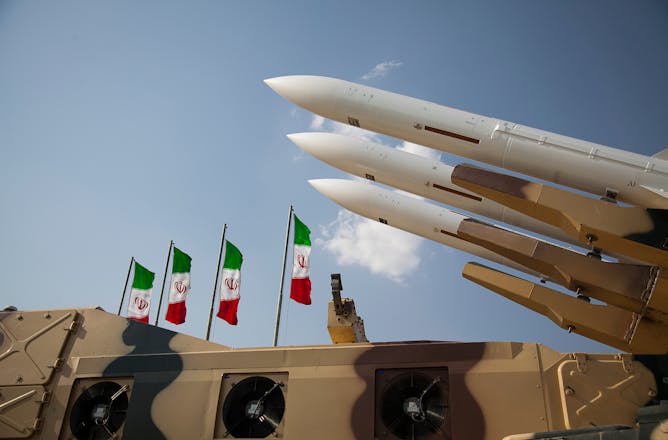|
Over the weekend, Iran launched a massive attack on Israel, following through on its promise of retaliation for a deadly strike on its embassy in Damascus two weeks ago. The attack, which involved over 300 drones and missiles, has been widely deemed a failure, with Israel and its allies successfully intercepting 99% of the projectiles. But it may well turn out to be a strategic success. Gavin Hall says the timing of the strike appears to have been orchestrated to expose divisions within Israel and between Israel and its key ally, the US.
Relations between Israel and the US have been under strain in recent weeks. While the attack on Israel may have brought Washington back onside for now, it also increases pressure on Prime Minister Benjamin Netanyahu to resolve the hostage situation. This may possibly result in an acceleration of plans for an assault on Rafah in southern Gaza, a move that would sour US–Israel relations further.
For his part, Javed Ali argues that the Iranian attack was not about inflicting physical damage on Israel. It was more about Iran attempting to restore deterrence with Israel following the Damascus incident and showing strength to its domestic audience. And that it seems more likely that Tehran will seek to revert back to its unconventional warfare strategy of supporting its proxy axis of resistance.
|

Gavin E.L. Hall, University of Strathclyde
Iran’s attack on Israel may have failed, but its timing was orchestrated to create maximum division.
|

Javed Ali, University of Michigan
A long-running conflict between adversaries Israel and Iran fell short of open confrontation – until both countries took more direct aim at each other.
|
|
|
-
Paul Rogers, University of Bradford
In recent weeks, as thousands died and the threat of famine settled over Gaza, the relationship Israel and its western allies had started to fracture. Iran’s attack appears likely to change that.
-
Michael F. Harsch, National Defense University
German Chancellor Olaf Scholz outlined bold, long-term goals: Strengthen the country’s depleted military with extraordinary investments and adopt assertive foreign policy defending global norms.
-
Dan Gordon, Anglia Ruskin University
‘HardestGeezer’s’ 16,000km feat highlights the remarkable capabilities of what the human body can endure
-
Henry Taylor, University of Birmingham; Masoumeh Mansouri, University of Birmingham
Stereotypes can creep in if ‘culturally sensitive’ robots are not designed with great care.
|
|

Aidan Byrne, King's College London
New research shows increased rainfall due to climate change is threatening the birds’ food supply.
|